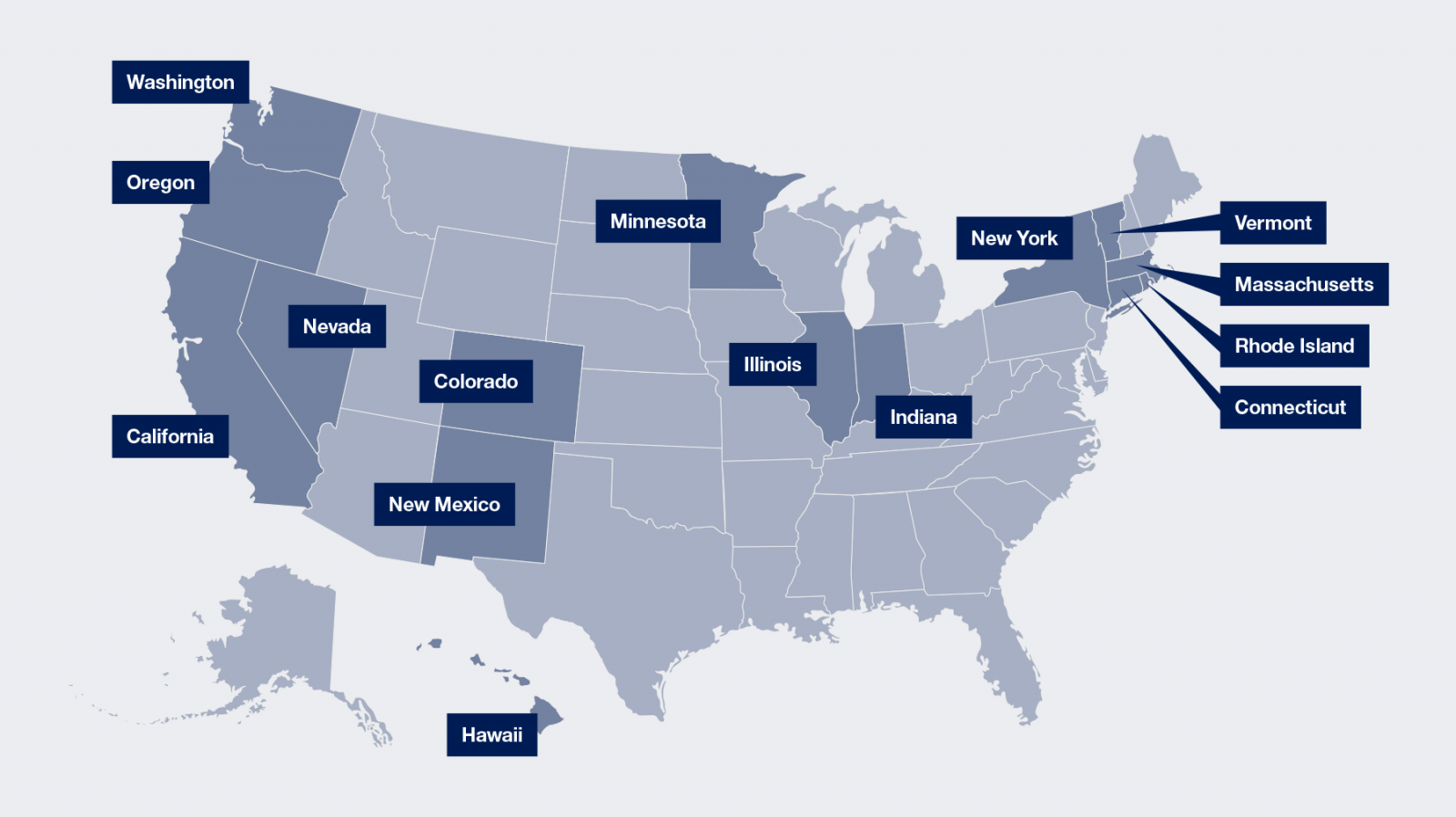[co-authors: Cory Zayance, Bianca Londres]
Starting Sunday, July 27, 2025, any party to an M&A transaction that triggers a federal Hart-Scott-Rodino (HSR) Act filing must also submit a copy to the Washington attorney general if the filing party (1) maintains a principal place of business in Washington or (2) generates in-state net revenues over certain thresholds. The Washington law adds a heightened notification requirement specific to certain healthcare transactions and amends the state’s existing healthcare premerger notification statute.
A similar law in Colorado goes into effect on August 6, 2025, but does not impact Colorado’s existing healthcare transaction law.
Washington and Colorado Lead
Both the Washington and Colorado laws are based on model 2024 antitrust legislation published by the Uniform Law Commission. Here are the key provisions of that legislation:
-
- Thresholds: Parties must file if their principal place of business is in the state or if they have annual in-state sales of at least 20% of the HSR minimum size of transaction threshold (currently $25.28 million worth of goods or services based on the current HSR threshold of $126.4 million, adjusted annually).[1]
- Notification: Parties must file a copy of the HSR form and additional documentary material with the attorney general.
Unlike the HSR Act, these state laws do not trigger a suspensory waiting period and there are no fees charged for filing. While significantly less than the HSR penalty[2], the penalties for noncompliance are $10,000 per day.
More states may follow Washington and Colorado. The California and New York senates passed similar legislation in June 2025 (although California’s bill comes with a filing fee and New York’s has some additional requirements as well). Similar bills are pending in Hawaii, Washington, D.C. and West Virginia but have failed to pass in Nevada and Utah. These state law developments occur against a backdrop of expanded federal reporting requirements, including Section 857 of the National Defense Authorization Act, which mandates concurrent filing with the Department of Defense for certain transactions.
States With Merger Reporting Regimes

Conclusion
Deal parties must be aware of these state-level filing requirements as they develop strategies to get their deal past regulatory review. The additional access to information may encourage state AGs to take a more active role in investigations, and experienced counsel is needed to navigate these evolving merger reviews. While the multifaceted enforcement landscape presents challenges, it also presents opportunities to advocate for procompetitive deals at both the state and federal levels.
[1] “To the extent that both the acquiring and acquired persons are required to report a transaction under the HSR, both persons might be required to file with the same AG if both persons fell within the coverage of this act.” Uniform Antitrust Pre-Merger Notification Act drafted by the National Conference of Commissioners on Uniform State Laws, dated September 16, 2024, available at Final Act with Comments_Antitrust Pre-Merger Notification Act_2024.
[2] The HSR civil penalty is currently $53,088 per day. This penalty amount is adjusted annually for inflation.